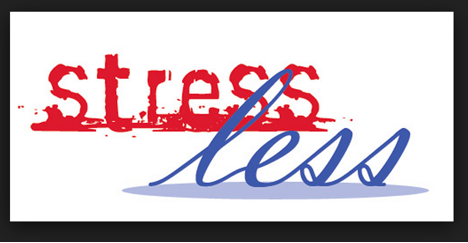myHIN Blog
Category: Stress Articles

October 06, 2013
Think before you say, act, and do!

I recently attended a program on my campus, which focused on discussing various “hot topics” that affect college students. The topics discussed including: Sex, Relationships, Voting, Religion, and Social Media.
What age is it appropriate to start having sex?
Though many of the topics discussed were interesting, one particular topic stood out to me—What age is it appropriate to start having sex? At first I was appalled. I never knew there was an appropriate age for sex. And if there was, what made that age, the right age?
The answers included: 13, before you go to college, when you’re married, and when you are ready to deal with the consequences.
As I sat in my seat, I began to listen to what others had to say. The answers included: 13, before you go to college, when you’re married, and when you are ready to deal with the consequences. For a moment, I felt embarrassed and hurt that peers thought this was an acceptable topic to discuss. I couldn’t believe what I was hearing.
Whether I agreed with some of the answers or not, I didn’t want to participate in a discussion that could potentially affect how another individual could make a decision when it comes to sex. Don’t get me wrong, I believe in educating my community about safe sex, but I think it’s important for people to know how much influence they could have on a person.
Whether or not I had an opinion on the topic, I made sure to keep it to myself. I didn’t want my opinion to influence someone else to make an irrational decision about sex. With that said, I think people should realize that we live in a society that most learn by example. And by that topic being discussed, we are saying its okay to assign sex to an age. And if you see nothing wrong with that, than maybe we as people need to evaluate ourselves. From this one experience I learned a valuable lesson: Think before you say, act, and do!
Follow us at tumblr.myhealthimpactnetwork.org (Tumblr)
Follow us on Twitter @myhealthimpact
Share

September 07, 2013
College Life
The first full week of class just concluded for students who attend NC State. Bombarded with syllabuses and numerous homework assignments, just the mere though of school can become overwhelming. While schoolwork is the premiere focus, it’s important to find a balance between school life and your own personal life. As a current senior, these are three things things I would recommend to any college student:

- Plan ahead- Calendars are extremely important. It is good to map out all of your homework assignments and exams ahead of time. By doing this, you can plan your studying accordingly.
- Prioritize what is important- As a student, you can be eager to join many clubs and organizations on campus. Though this may be a good thought, it is important to keep in mind your schoolwork, which ultimately comes first. Don’t over obligate yourself and think that you have to join every organization there is. Joining a few organizations and obtaining leadership roles is more important than just being a member in many organizations.
- Do not stress- College is supposed to be an enjoyable time. As many people say, this is the best time of your life! This is also a time that you can never get back. At this point, many college students don’t have bills to worry about. We have the chance to travel and experience the world while we don’t have any more obligations besides school.
Follow us at myhealthimpactnetwork.org/blog (Tumblr)
Follow us on Twitter @myhealthimpact
Share

August 11, 2013
Stress LESS
As humans, we tend to let our busy lives take over and we sometimes forget about our health. Taking care of ourselves physically and mentally is vital so we can live longer and stronger! Here are a few tips on how you can stress down:
SLEEP
Caring for children, a household, work, marriage, etc may leave you very little consideration for sleep. We may think we are super heroes and are able to keep busy off of no sleep; however your body thinks otherwise. It is extremely crucial that adults to get AT LEAST 6 hours of rest (preferably 8 hours). An energized adrenaline system goes a long way when it comes to stressing less.
EAT
As you know, you need nutrients at all times in order to regulate your brain and satisfy your body. Experiencing stress may lead you to over eat or not eat at all, both negatively impacting your health. Make sure you remember to eat smaller sized portions throughout the day and make healthy choices!

RELAX IN SILENCE
You may or may not have thought about it but too much noise may stress you out. Chaos and loudness commonly confuses the brain and often moves you to “shut down”. Take time(s) out of your day to have ME time: no external voices, outside noise or physical activity.
HAVE FUN
Do not let work or unfortunate life situations be the end of the world! Be blessed that you are here to see another day and realize someone else always has it worse than you. Understanding that you may want to be there for others, but you have to remember yourself and your health FIRST! Every once in a while go out and enjoy whatever activity makes you happy and do it with the people that you love most.
Follow us at tumblr.myhealthimpactnetwork.org (Tumblr)
Follow us on Twitter @myhealthimpact
Share

September 10, 2012
“You Ain’t Crazy: It’s Your Mental Health!”
On Thursday, August 30th, Dr. Payton gave a presentation on campus titled ‘You Ain’t Crazy: It’s Your Mental Health’ where she discussed mental health issues in the African-American community. What stuck out to me the most was the video she showed featuring Terrie Williams where she talks about her book “Black Pain: It Just Looks Like We’re Not Hurting”. Williams talks about how people think they are the only one who is going through something so they keep things bottled in and suffer from depression, hyper tension, and heart disease; or it will come out through self-medicating, gambling, sex, risk behaviors, etc. Risk behaviors can only increase the chance of being exposed to HIV.
For some strange reason, in our community, when we are suffering from something such as depression, we don’t go and get help. Instead, we turn to a friend who ends up giving us bad advice or just decide to seek a spiritual source to resolve our problems. While I am not knocking the latter, sometimes it is good to keep mental and spiritual health issues separate. Unfortunately, I am speaking from experience.
Last semester I had things going on with my family that I had never experienced before and I didn’t have time to react properly. I used my school and extra-curricular activities as a way to block everything out until one day it caught up with me. I literally woke up crying. I didn’t go to class that morning (which added to my stress) and I reached out to one of my sorority sisters who I am close with. Having experienced depression before, she forced me to go to the University Health Center to seek counseling. I was skeptical at first, but I figured it wouldn’t hurt to talk to someone who was a professional. I went to the Health Center and was told that I needed to set up an appointment. I was upset because I didn’t want to wait to talk to someone in seven days; I needed someone at that moment. I was afraid that my natural habit of pushing things away would hinder me from receiving proper help. In any case, I set the appointment and returned a week later. Unfortunately, the counselor was not helpful, but I was proud of myself for taking the initial step.
When I told certain people in my family that I went to see a counselor their response was ‘what do you need to do that for?’. I responded ‘to make sure I don’t go crazy!’. I also told them that I wanted to find another counselor and begin seeing them regularly, again they asked ‘what do you need to do that for?’. I believe that counseling can help you receive an unbiased opinion on how you should move forward. A counselor does not give you advice based on experience. They give you advice based on clinical research that can help you control your reaction to events that you can’t control. Can you control risk behaviors?
If you’re reading this and you have something that you are dealing with, seek help. More than likely you are not alone in the matter. If you need motivation, watch the video below featuring Terry Williams who also gives her personal testimony about battling with depression.
For up-to-date information, follow @myhealthimpact on Twitter!
Share
Page 4 of 4 pages ‹ First < 2 3 4
In Partnership with: Poole College of Management, College of Humanities and Social Sciences, National Science Foundation, Penn State
Take Action, Get Tested: Find Your Local Testing Center Why Get Tested?
